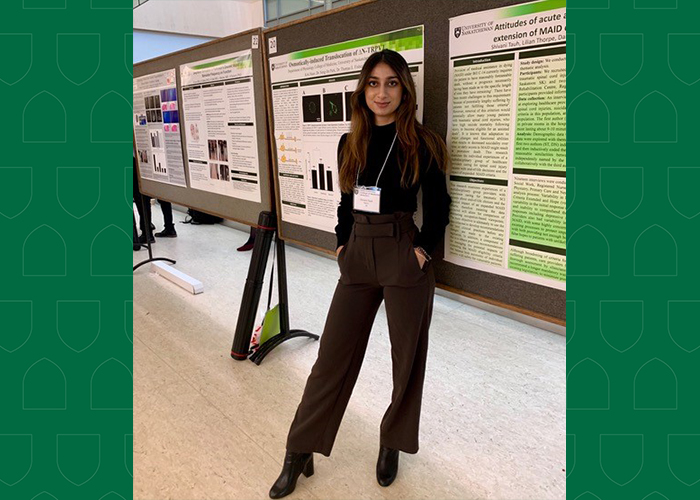
What I Did Last Summer: Shivani Tauh and End-of-Life care
Highlights from undergraduate summer research projects at the University of Saskatchewan's College of Medicine
By Researchers Under the ScopeListen to all episodes of Researchers Under the Scope podcast.
Subscribe to the podcast on Spotify or Apple Podcasts
One patient Shivani Tauh interviewed had to remove his ventilator tube to speak with her.
Another told her it felt 'disingenuous' when able-bodied health care providers looked at his spinal cord injury and assured him "this will pass."
Shivani Tauh kicks off our undergraduate summer research series in this episode, as we discuss her work on spinal cord injuries, and how they change a person's outlook, mobility and prognosis.
Tauh, who is now entering her fourth year of medical school, has collected patient-driven policy suggestions for those whose work deals with medical assistance in dying (MAID).
Over two summers, Tauh interviewed both health care workers, and people who suffered spinal cord injuries, to elicit their opinions and experiences as Canada overhauls and modernizes laws around end-of-life care. Her research was done under the supervision of Dr. Lilian Thorpe and Dr. Darren Nickel.
In a field fraught with ethical questions, Tauh said this research changed her perspective on end-of-life care.
She described in-person interviews with spinal cord injury patients as "eye-opening," pointing to one patient's account of feeling isolated and alone.
"He never felt like his health care providers, specifically his physicians, really understood what he was going through," said Tauh.
"It's difficult to have somebody that really has no true insight or understanding into what you're going through say, 'oh it'll be okay.'"
Taugh said her summer work underscored the need to protect vulnerable people within the health care system while also preserving their autonomy.
"I would like to incorporate end-of-life care into my practice, regardless of what specialty I end up going into," said Tauh. "This is an area of medicine I feel very passionate about."
